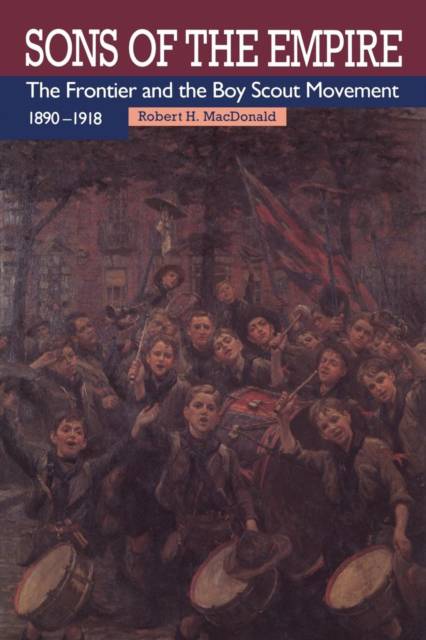
- Afhalen na 1 uur in een winkel met voorraad
- Gratis thuislevering in België vanaf € 30
- Ruim aanbod met 7 miljoen producten
- Afhalen na 1 uur in een winkel met voorraad
- Gratis thuislevering in België vanaf € 30
- Ruim aanbod met 7 miljoen producten
Omschrijving
In Sons of the Empire, Robert MacDonald explores popular ideas and myths in Edwardian Britain, their use by Baden-Powell, and their influence on the Boy Scout movement. In particular, he analyses the model of masculinity provided by the imperial frontier, the view that life in younger, far-flung parts of the empire was stronger, less degenerate than in Britain. The stereotypical adventurer - the frontiersman - provided an alternative ethic to British society. The best known example of it at the time was Baden-Powell himself, a war scout, the Hero of Mafeking in the South African war, and one of the first cult heroes to be created by the modern media.
When Baden-Powell founded the Boy Scouts in 1908, he used both the power of the frontier myth and his own legend as a hero to galvanize the movement. The glamour of war scouting was hard to resist, its adventures a seductive invitation to the first recruits. But Baden-Powell had a serious educational program in mind: Boy Scouts were to be trained in good citizenship.
MacDonald documents his study with a wide range of contemporary sources, from newspapers to military memoirs. Exploring the genesis of an imperial institution through its own texts, he brings new insight into the Edwardian age.
Specificaties
Betrokkenen
- Auteur(s):
- Uitgeverij:
Inhoud
- Aantal bladzijden:
- 260
- Taal:
- Engels
- Reeks:
Eigenschappen
- Productcode (EAN):
- 9781442613133
- Verschijningsdatum:
- 1/11/2011
- Uitvoering:
- Paperback
- Formaat:
- Trade paperback (VS)
- Afmetingen:
- 152 mm x 229 mm
- Gewicht:
- 381 g

Alleen bij Standaard Boekhandel
Beoordelingen
We publiceren alleen reviews die voldoen aan de voorwaarden voor reviews. Bekijk onze voorwaarden voor reviews.











